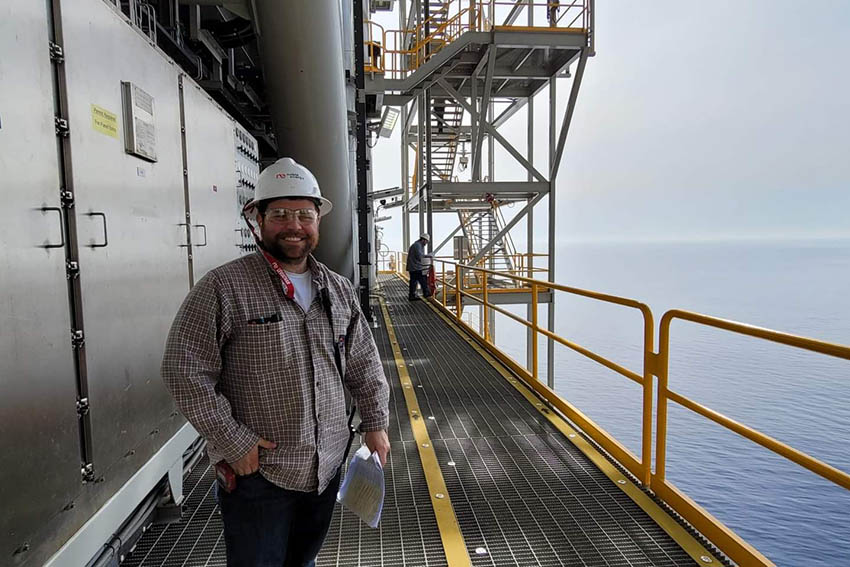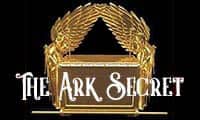Instrumentation degree takes graduate around the world

When Carl Edwards of Galax, Va., chose to attend New River Community College, he came for some of the same reasons many local students do: it was affordable and close to home. But beyond those more conventional reasons, there was something else that kept him at NRCC.
“I’d heard great things about the instrumentation program while I was taking some electrical classes at NRCC after work in 2013,” Edwards said.
The instrumentation program at NRCC provides hands-on training and education in required skills and theory to master the responsibilities of an instrument and controls technician. The program also provides the foundation for on-the-job training and other career challenges in the instrumentation and control automation field.
Edwards enrolled in the program. While at NRCC, Edwards made friends that he keeps in touch with several years later. He also remains in contact with his professor, Montie Fleshman.
“Montie was a great teacher,” Edwards reflected.
After graduating from NRCC in 2016 with an associate degree in instrumentation and control automation technology and electrical engineering, Edwards took a job at OCI Iowa Fertilizer Company, a position he found online. There, he was able to obtain some additional certifications that made him even more employable in his field.
Being willing and able to relocate for a job with short notice is also of value to potential employers, Edwards explained.
“One of the unique things about the instrumentation field is that students can work in lucrative positions not only locally but all over the country if they’re willing to travel,” said Edwards.
And for Edwards, his work even took him outside the United States.
“I traveled before college doing electrical work, so I have always done it. Instrumentation opened up overseas and out of country work for me,” said Edwards. “The degree and skills from NRCC allowed me to see the world.”
Edwards has worked on projects ranging from Iowa to Minnesota to Pennsylvania in the U.S. Beyond the border, he spent nearly two years in the Caribbean working at Limetree Bay Refinery in St. Croix and six months testing safety systems on the Leviathan offshore gas production platform that fed up to 2.1 billion cubic feet per day into the Mediterranean Sea.
While working in St. Croix, Edwards reflected how he was able to get off work and go scuba diving or swimming anytime he chose.
Most recently, his work took him to Ontario, Canada. He is currently working as a field engineer on a refinery restart project in Newfoundland, Canada.
He notes that the instrumentation field is a secure career path.
“There’s places always contacting me for long-term and short-term jobs, so I feel that I have job stability,” said Edwards.
His industry is also lucrative, especially for those who are willing to travel and work overtime.
“If you are not scared of overtime, you can make between $160,000 to $250,000,” explained Edwards.
But his work isn’t solely about the income or the travel. Beyond the day-to-day work, the most interesting thing about his profession is working with so many different people.
“I’ve worked with people from all over—India, Israel, Germany, Italy, Trinidad, Canada, Singapore, New Zealand, and England,” said Edwards.
Edwards believes his training at NRCC wholly prepared him for his career both at home and abroad.
“The instrumentation calibration equipment at NRCC is exactly what I have used and seen on some multi-billion-dollar projects,” said Edwards. “The instrumentation degree from NRCC was one of the best investments in myself, and I would urge anyone and everyone to look at it as a career path.”
For more information about the instrumentation and control automation technology program at NRCC, visit www.nr.edu/instrumentation/.









